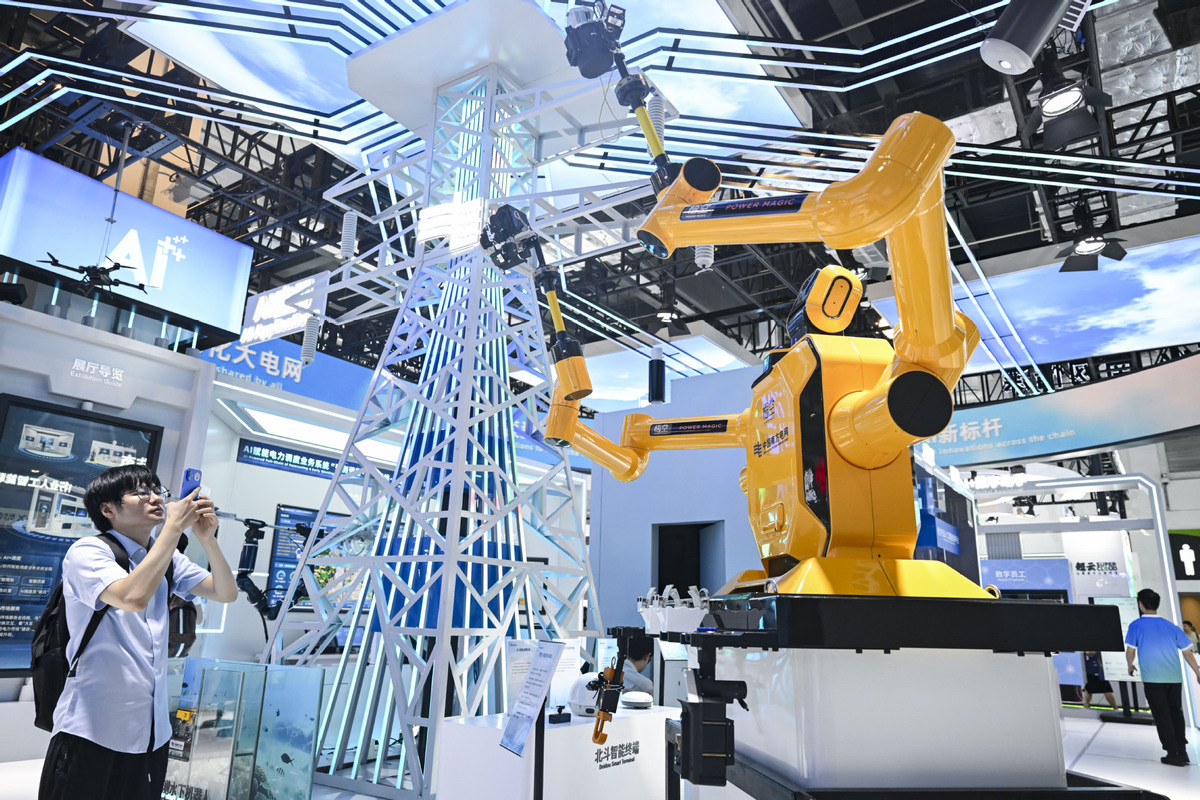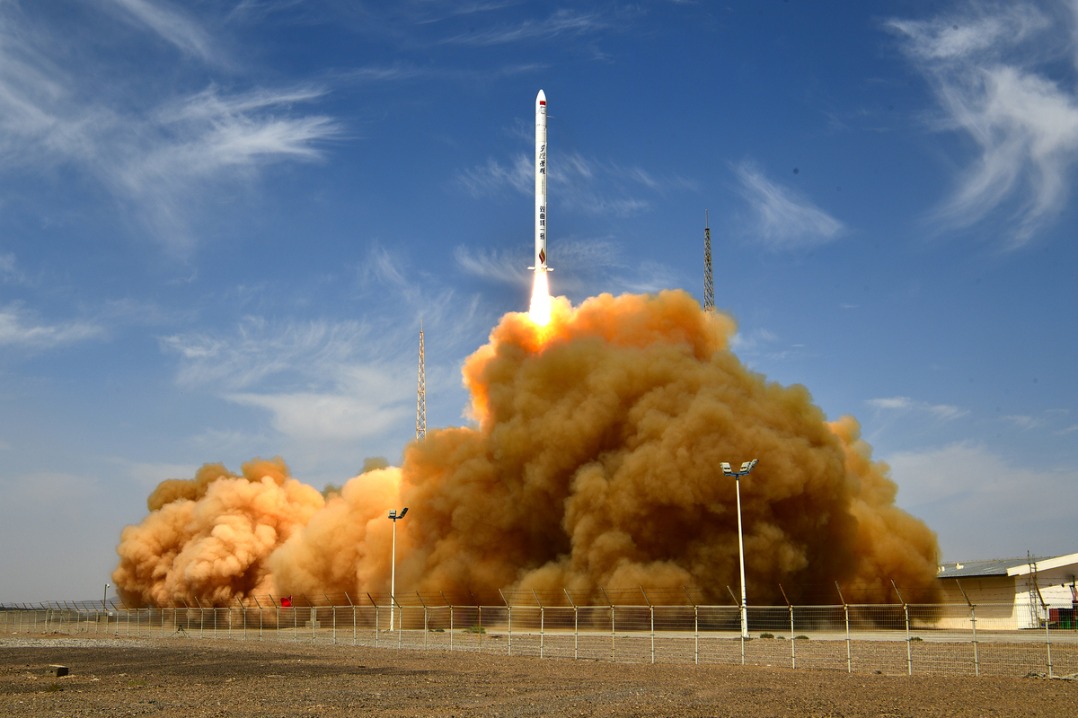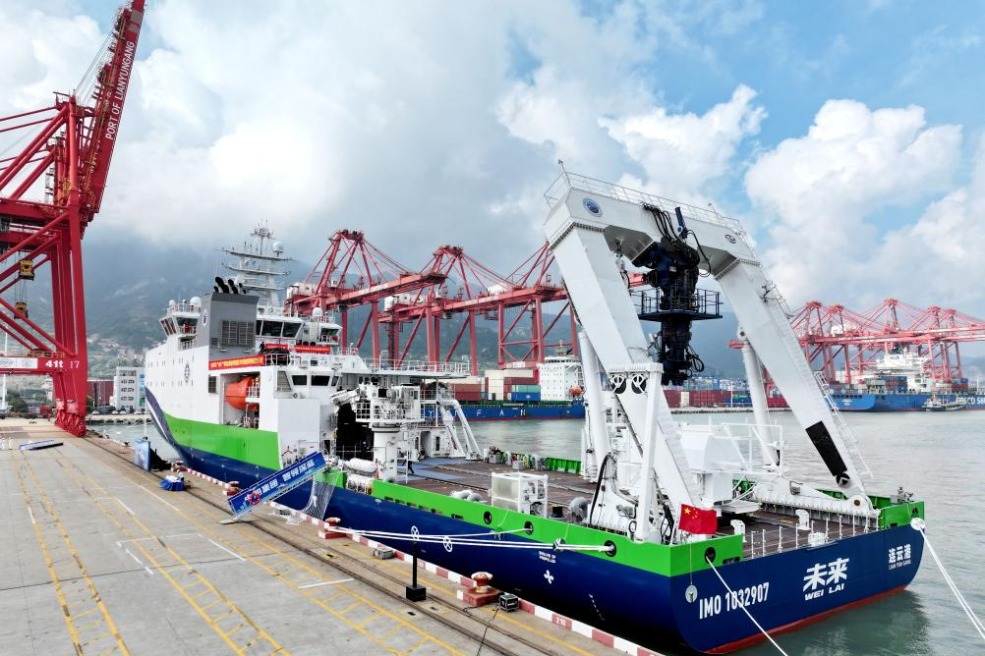Nation's AI industry hailed as economic growth driver


The record number of new attendances and product releases during the 2025 World Artificial Intelligence Conference and High-Level Meeting on Global AI Governance have reflected the rapid progress made in China's AI industry, which is emerging as an important driver of high-quality economic growth, said officials and company executives who participated in the event in Shanghai.
The closing ceremony of the three-day event on Monday witnessed the official launch of the Shanghai AI Corporate Venture Capital Fund, with an initial investment of 3 billion yuan ($418 million). The fund aims to accelerate the development of ecosystems for AI models, corpus and computing capacity, positioning the city as a leader in innovation.
Also on Monday, the Shanghai municipal government unveiled 12 measures to further expand the application of AI.
Shanghai Vice-Mayor Chen Jie said that over 3,000 cutting-edge products were showcased at the event, which was double that of last year and hit a new record. More than 100 of these products made their national or global debut at the conference, he noted.
The exhibition area, covering 70,000 square meters, was 40 percent larger than last year and surpassed the capacity of all seven previous editions, Chen said, adding that more than 800 companies were part of the event, with half of them being innovation-driven startups.
According to data released by the vice-mayor, more than 300 purchase orders were made during the three-day event, and their combined value is estimated at 16.2 billion yuan. Despite the hot weather and a typhoon warning, the three-day event attracted a record-breaking crowd of more than 350,000 visitors, the data showed.
Zhu Zheqing, founder and CEO of the startup Pokee AI, said he was impressed by the intensity of new releases at this year's event. China is promoting AI technologies and their applications at a noticeable speed, he said, adding that the practical discussions held on user interactions and product delivery would help companies check if they have chosen the right path.
More important, China is no longer a follower, but a leader in AI development, Zhu said.
"More and more technology paths, open-source ecosystems and products originally developed in China have been making outbound reaches," he said.
Critical phase
Roman Fan, a managing partner at Deloitte AI Institute, said this year's conference was not only about the demonstration of frontier technologies, but also showed the beginning of the restructuring of the industrial ecosystem.
Through open-source sharing, capacity building and coordinated governance, AI is gradually becoming a fundamental force driving social progress and injecting new momentum into global sustainable development, he said.
"It can be seen … that AI has entered the critical phase of transforming from experiments in labs to industrialization and scaling up. We can see the broad perspective of AI empowering various industries," Fan added.
Multinational consumer goods company Unilever, a first-time exhibitor at the conference, debuted its "AI for Science" innovation platform, the development of which was led by the company's Chinese research and development team. The platform integrates six major AI models and facilitates the entire R&D process, from ingredient screening to efficacy verification, thereby shortening the R&D period from years to months.
Shen Jun, vice-president of Unilever's China R&D center, said that AI applications will help the company find the right technological solutions more precisely. Higher R&D efficiency means that more innovative results can be more rapidly transformed into products, enabling the company to respond to consumers' changing demands in a timely manner, he said.
According to consultancy firm Accenture, around 53 percent of Chinese companies are using AI to connect and integrate multiple production procedures, which is 11 percentage points higher than the global average.
This shows that Chinese companies no longer view AI as merely a tool, and that AI is now deeply integrated into various scenarios and is integral to companies reshaping their strategies, Accenture said in a report.
shijing@chinadaily.com.cn
- Landslide death toll rises to 8 in Hebei
- Beijing villagers rescue 100 amid flood crisis
- Flood relief efforts stepped up in Beijing, Tianjin and Hebei
- Death toll rises to 8, 4 still missing in North China landslide
- Heavy rain, storms forecast to continue in North China till Friday
- China launches commercial carrier rocket




































